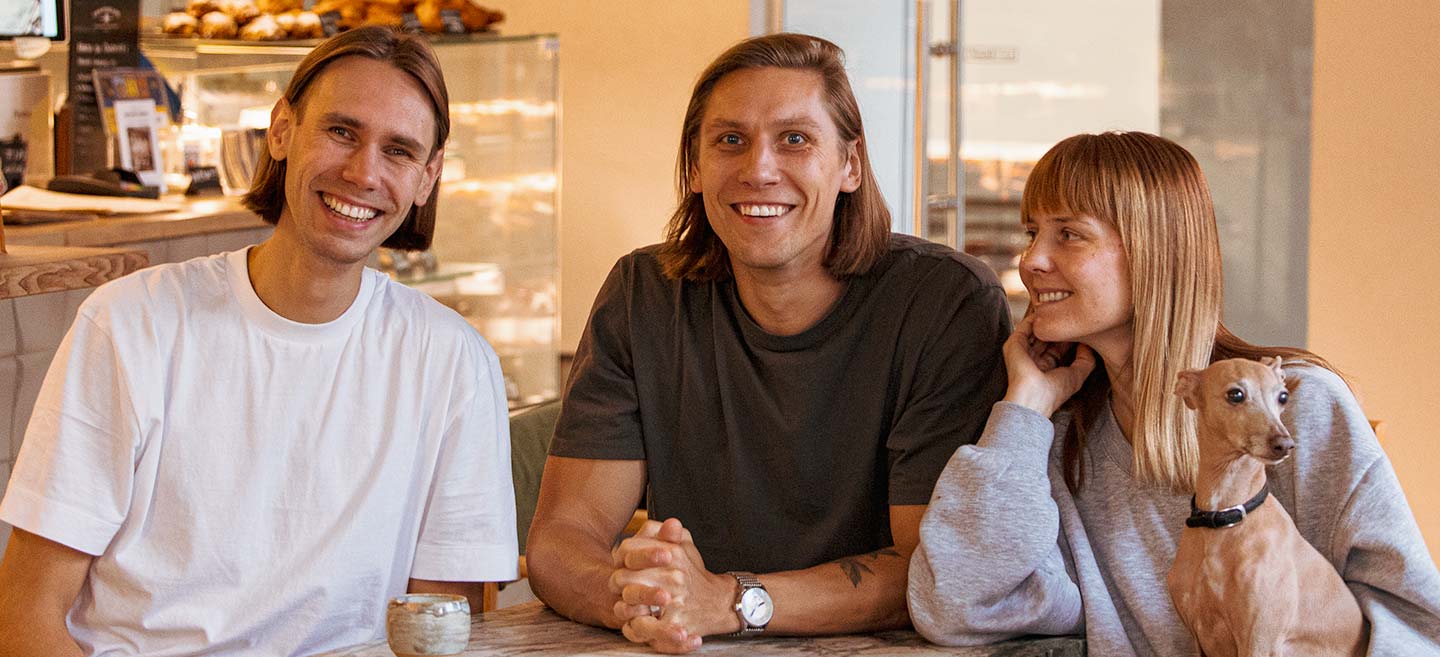
Creativity, Coffee, and Success without Compromise
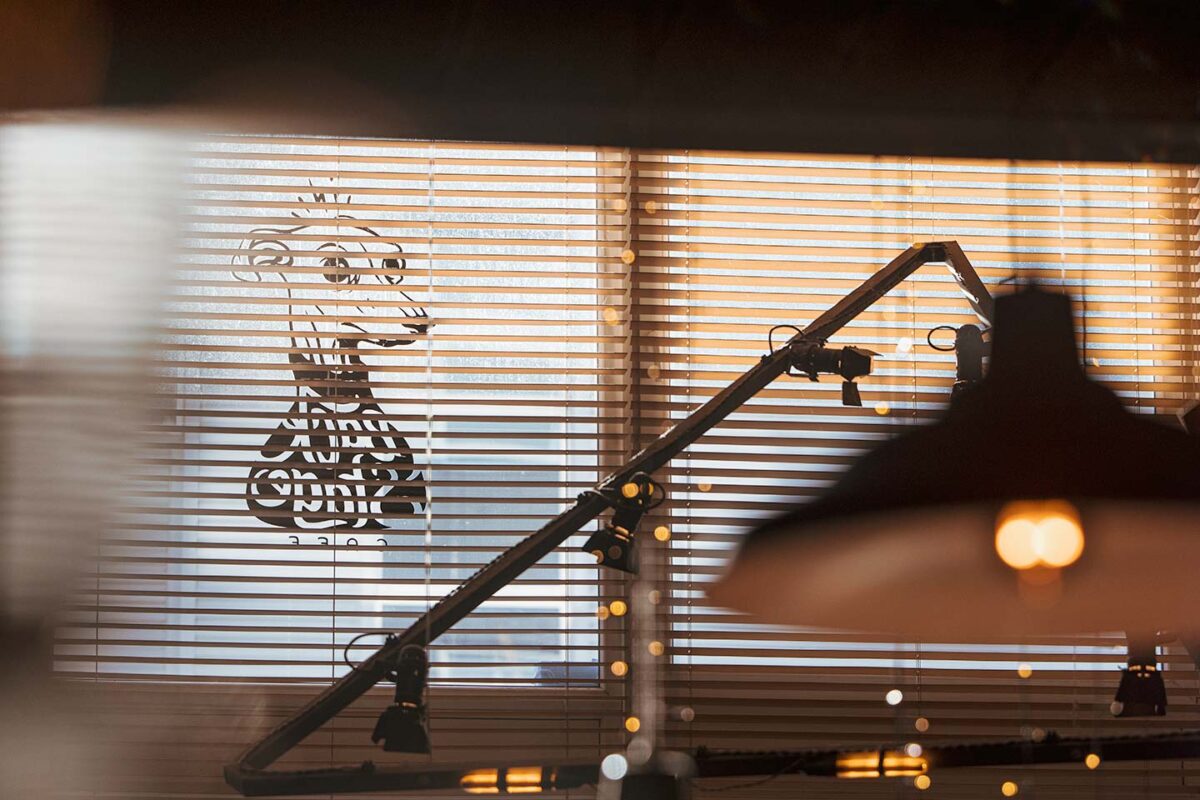
Backstage Roasters was founded in Lithuania in 2017. Ever since, three former commercial photographers have joined forces to cultivate the brand. While the country’s specialty coffee scene began to gain momentum from around 2008, it still has less than 10% of the market share today. The trio have tried a variety of different ideas to encourage customers to be interested in their niche and solidify their presence.
Positioning the cafe as a hub for creativity meant that Backstage had to find a way to balance business considerations with creative freedom. How do you keep the customer happy without sacrificing your ambitions or ideals? The three are on a journey to find the answer.
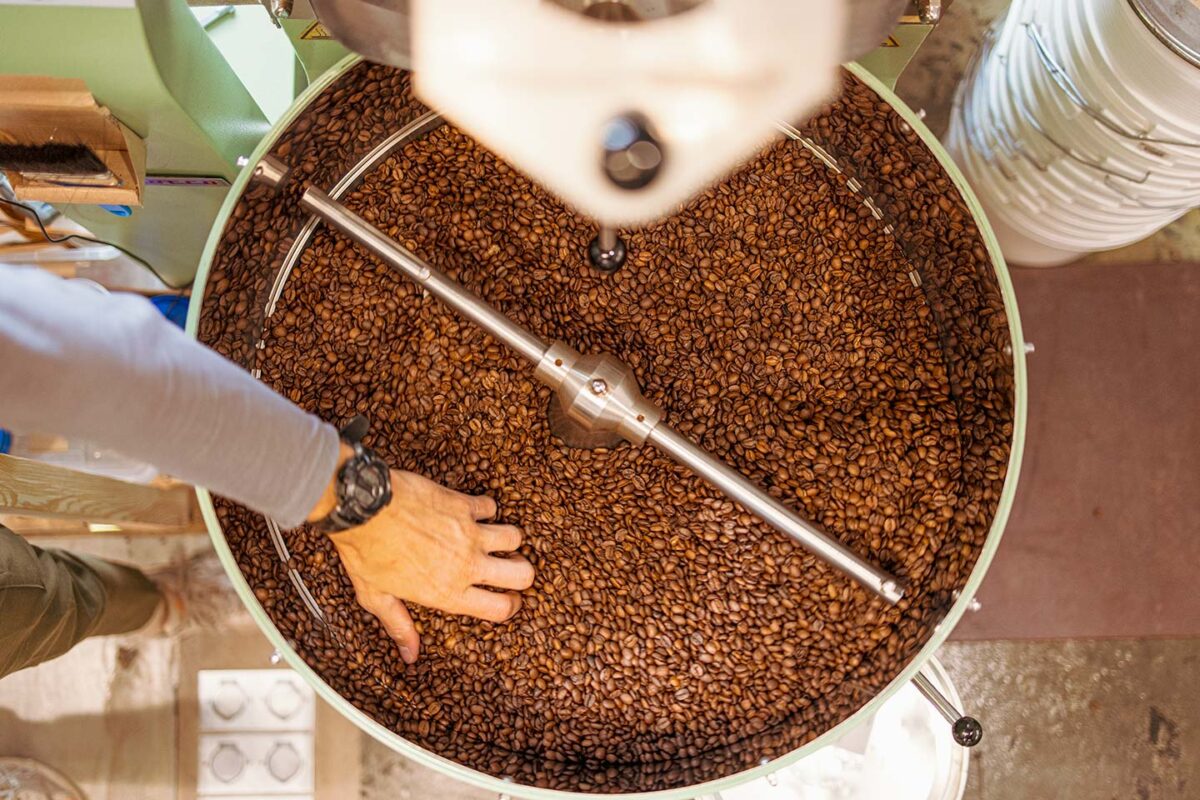
Making things interesting by getting involved
Coffee is often compared to wine. Both share the characteristic of being influenced by the terroir or producer, to create an endless variety of flavor. However, there is one significant difference. Whereas wine is a product completed at the source, coffee is a product completed by the consumer. A mediocre cup of coffee in a cafe could become something exceptional with a different brewing method at home. In fact, this involvement in the process could be one of coffee’s biggest appeals.
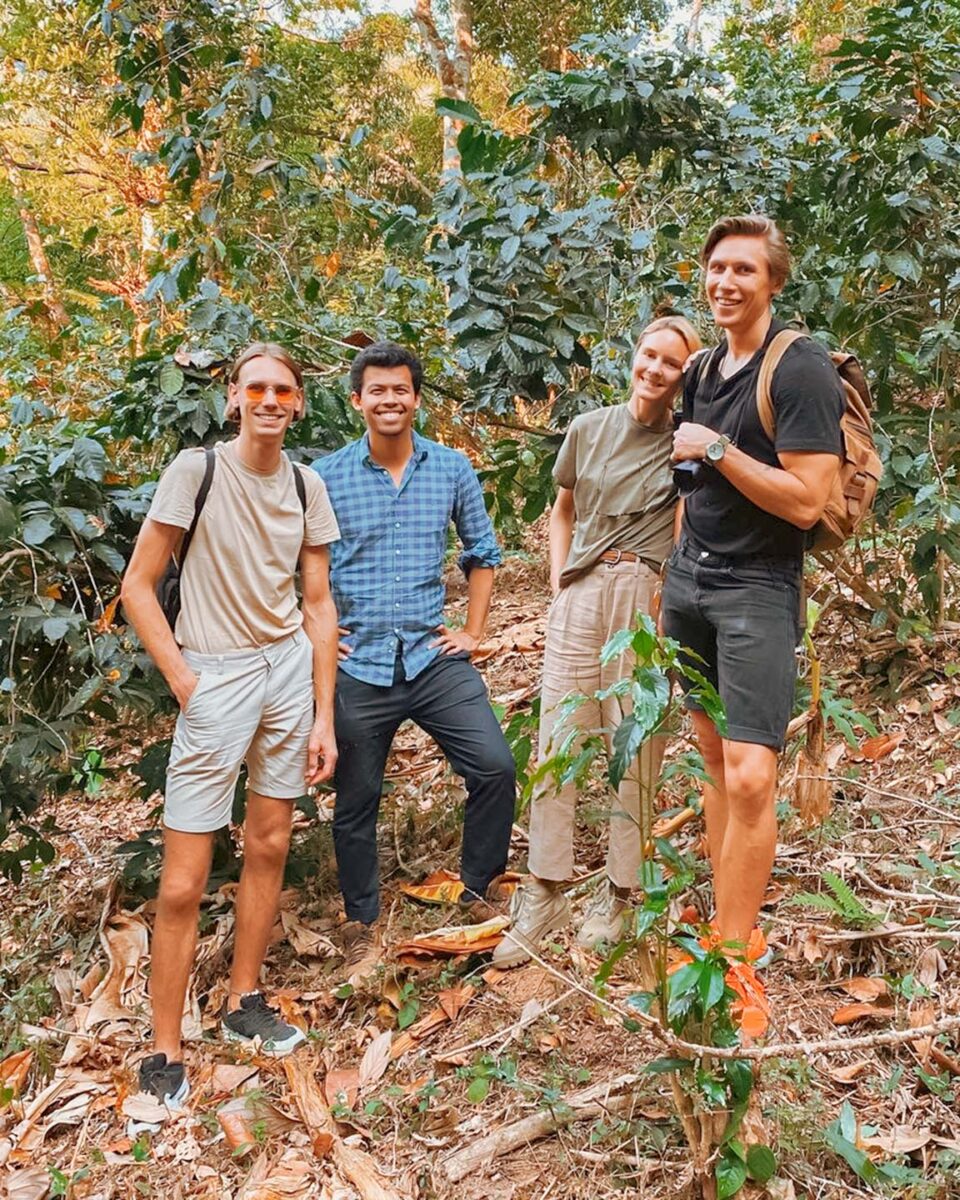
Being involved in the process is also a big part of who Backstage are. Despite being a micro-roastery, they purchase coffee directly from three producers based in Indonesia, Brazil, and Thailand. Their priority is on building a sustainable relationship with the producer, so fluctuations in flavor, quality, or price due to environmental factors will not deter them from making a purchase. Instead, they pre-agree a fixed volume to purchase, switch to a different variety, and adopt alternative methods to maintain the relationship from both sides. Head roaster, Robert Muravskij, explains.
“I go and visit the producers, so I know that they’re working hard to improve the quality. I can be confident that after two or three years, the profile they’re working on will be at the standard we’re looking for. The customer doesn’t care how much or little we are committed to our relationship with the producers. But we know that this commitment is crucial to help us build a sustainable business, and we plan to increase the direct trade connections we have in the future.”
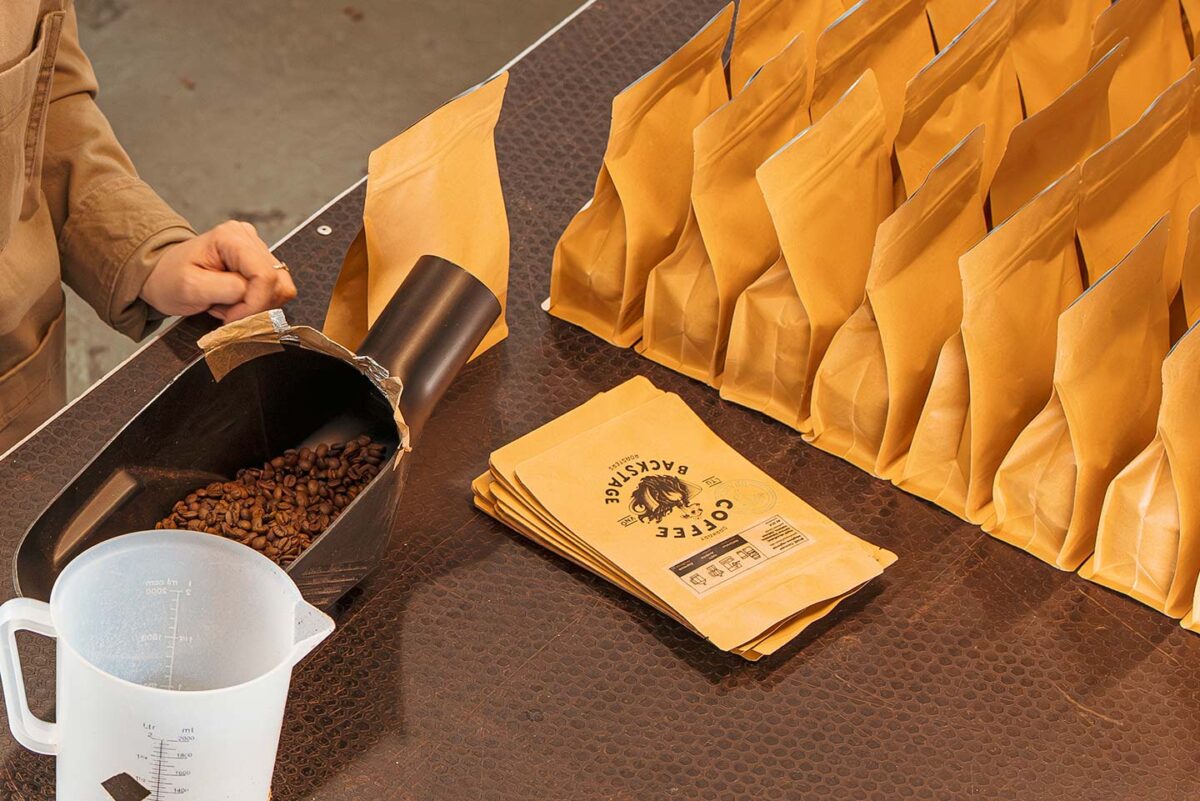
Vytenis Petrošius, director at Backstage, continues.
“What I love most about this job is being able to influence the product through interacting and exchanging ideas with the producers. This human connection with the farmer inspires us to make more connections with more producers.
We began this style of purchasing because we weren’t happy with the quality and choice of beans we were getting from the wholesalers, so we began roasting our own and buying direct. It’s the same with the baked goods and snacks at the shop. We wanted to have cinnamon buns but we couldn’t find any we liked, so we needed to make our own. It takes time, but we realized the only way to get the standard we wanted was to make it ourselves.”

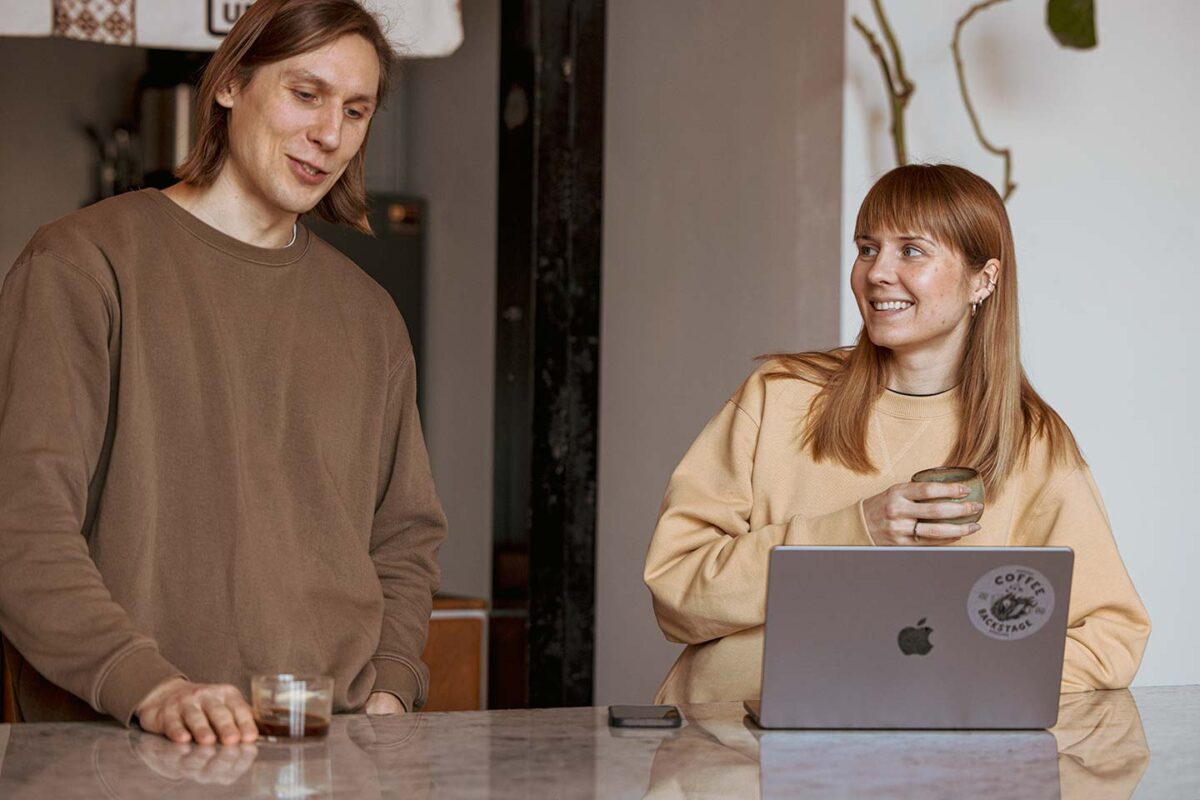
Thinking on your feet
Cafes and coffee shops are often viewed as relatively accessible business ventures. For better or worse, anyone with enough money can open a cafe. You don’t need previous experience or a professional education. Having access to YouTube and other resources has lowered the bar even further.
Backstage tested this theory to the limits, entering the business with knowledge gained from four or five books and endless hours of YouTube. Initially, Vytenis and Ieva Markevičiūtė were not interested in running a coffee shop, but their experience traveling overseas finally helped them understand the appeal. They began to see a cafe as a safe haven. A place to escape a chaotic life on the road. Somewhere to relax, do some thinking, and maybe make plans for the journey ahead.
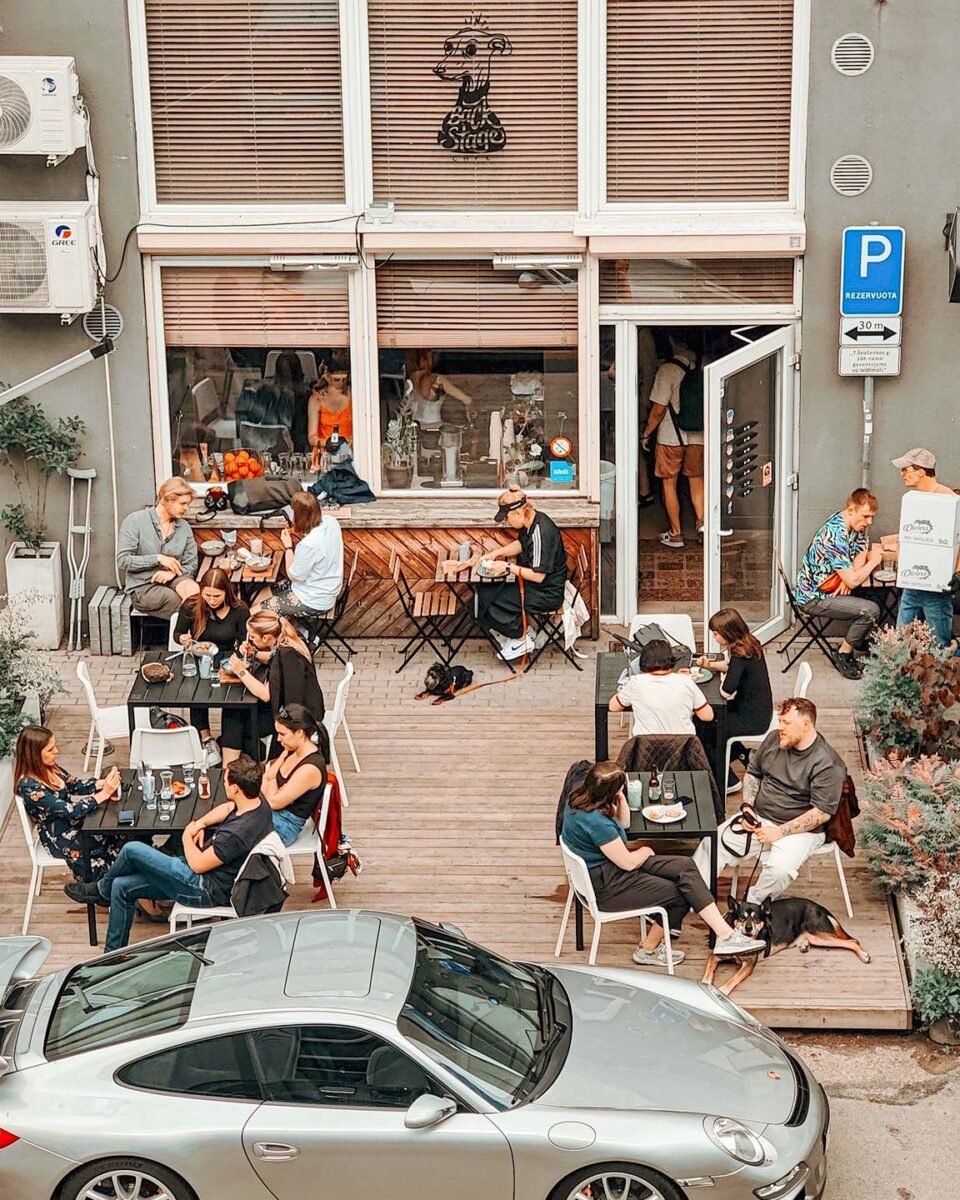
During their travels, they’d also found that the really interesting and curious spots were not in the city center, but somewhere on the outskirts. When they returned to their hometown Vilnius, they decided that their house, located 2 km outside of the city center, would make the ideal location. Hiding the cafe away in a little-known spot meant they could filter out people not interested in coffee, and narrow down their customers to those who had sought them out on purpose.
Ieva’s house was in a factory area that used to produce electronics, household appliances, and military supplies until around 1990, during the Soviet Union era. After the regime’s collapse, the area drew a creative crowd of architects, designers, and artists who could see the potential to renovate the factories into loft apartments, art studios, and community spaces.
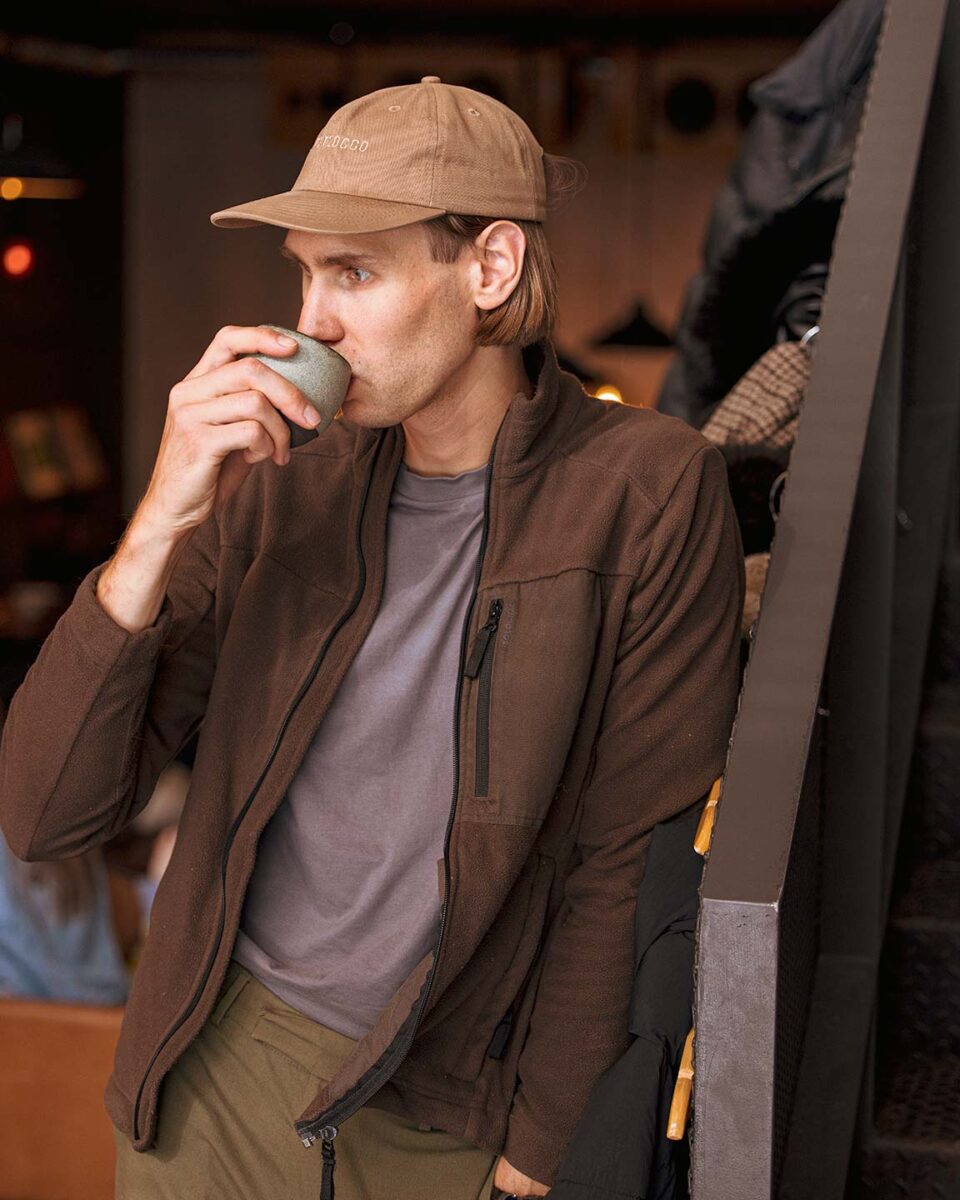
At the time, Robert was working as a freelance commercial photographer and he looked on with envy at the lifestyle of his two university friends. While they were living a life true to themselves, he was stuck working overtime and chasing fees. Tired both physically and mentally, it was no surprise that Robert decided to join the Backstage plan.
However, the early days of the company proved to be harder than expected. The choice to put the cafe in an out-of-the-way spot came with disadvantages. Their coffee lineup was based on their own preferences, and their skills, gained from imitation, were not yet tried and tested. With the priority being on providing a creative space, it was inevitable that the business would hit a wall.
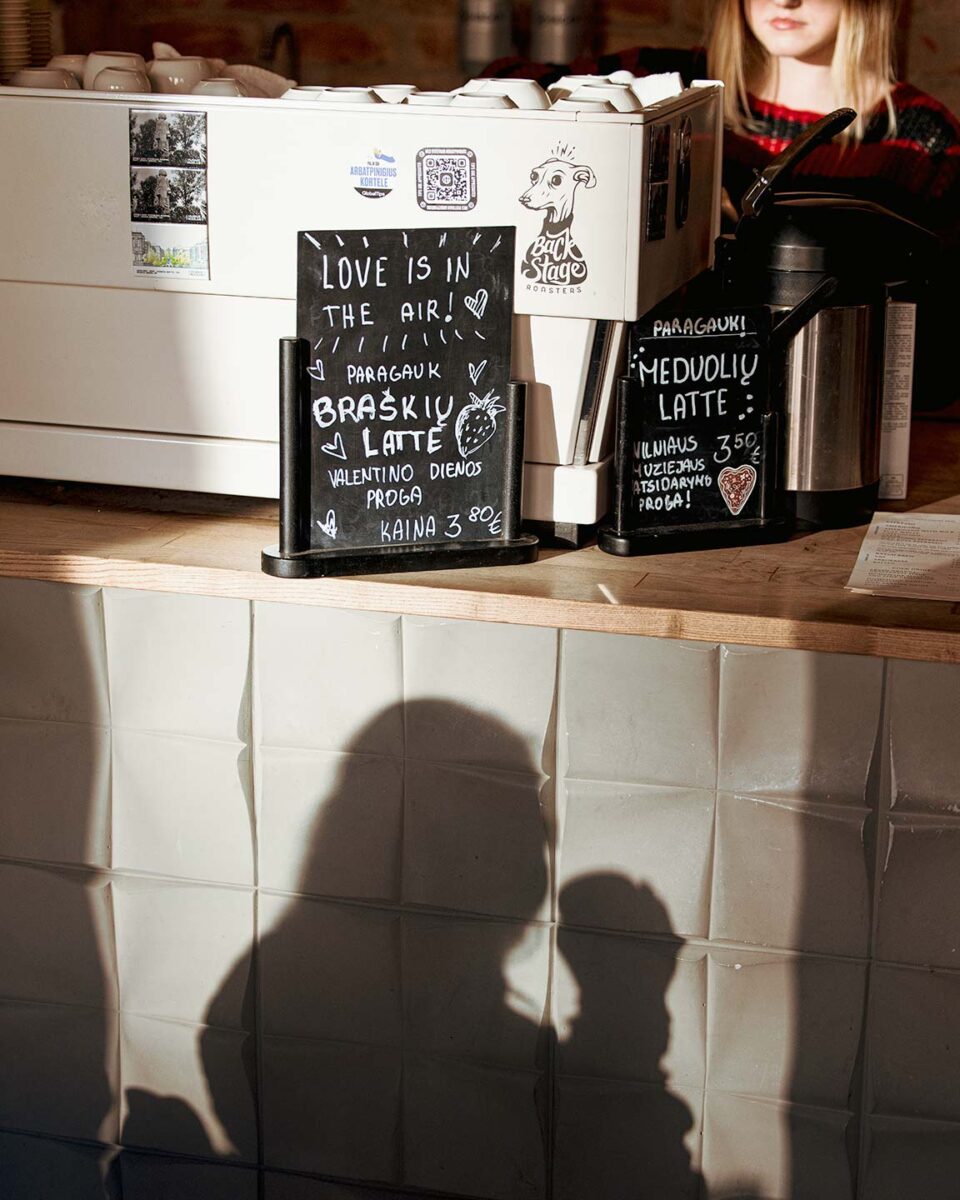
Vytenis: “We didn’t know anything about the industry, and our initial approach was terrible. Like plants trying to grow as fast as they can, reaching out for as much sun as possible, we dove straight in and were ready to give it a go, but trying to filter out what worked and what didn’t on our own wasn’t really cost-effective. Back then, we were so passionate about sharing what we believed in, we’d spend ages talking to the customers. I’m grateful that they stuck around and kept coming back! I’m the worst, super slow. Sometimes I can keep a customer waiting five minutes before they get their cup of coffee.”
Until the second year, none of them had much more than pocket change to show for their efforts. But this result was not enough to dissuade Vytenis and Robert from their plan. They believed in the potential of the business to grow.
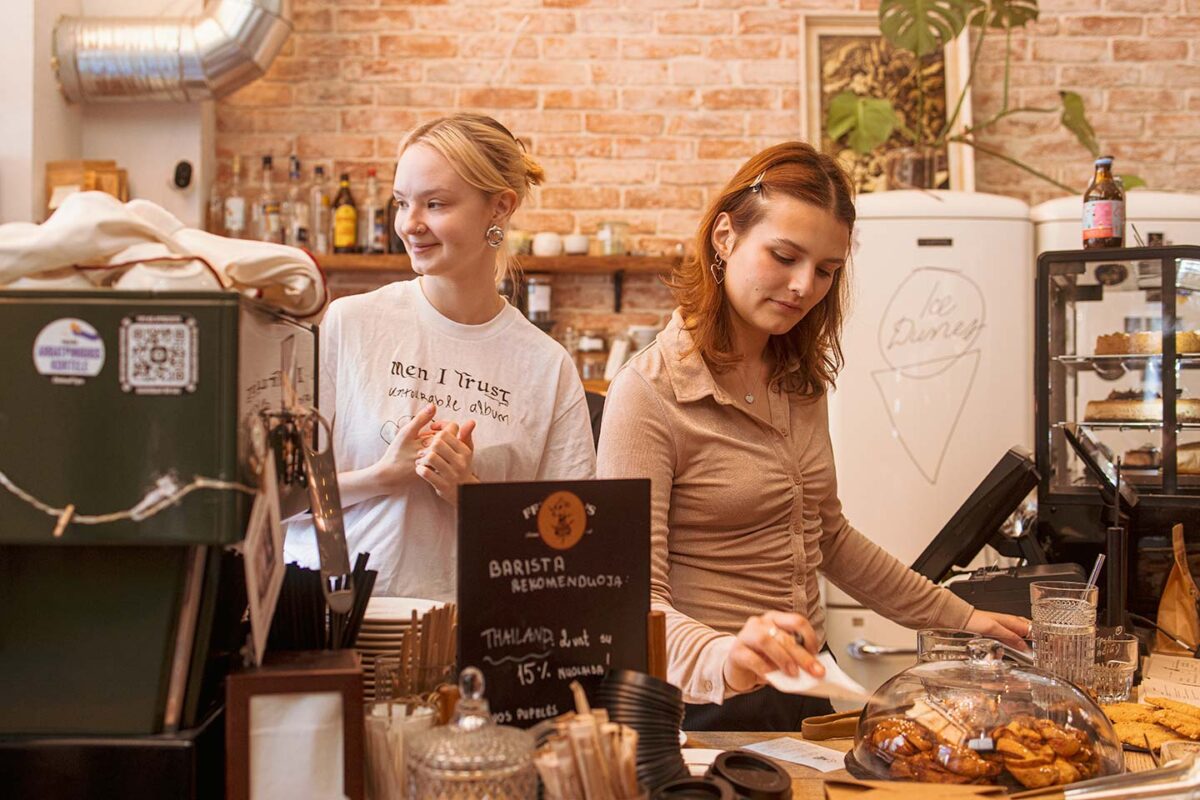
And in the end their belief became reality. They hired first one, and then two baristas. Three years after the founding, they no longer needed to stand behind the counter. Then in 2020, they opened their second cafe as a museum coffee shop in the city center. In summer 2023, they’ll be opening a cafe with a new concept, and are looking to expand into Poland and other areas in Europe.

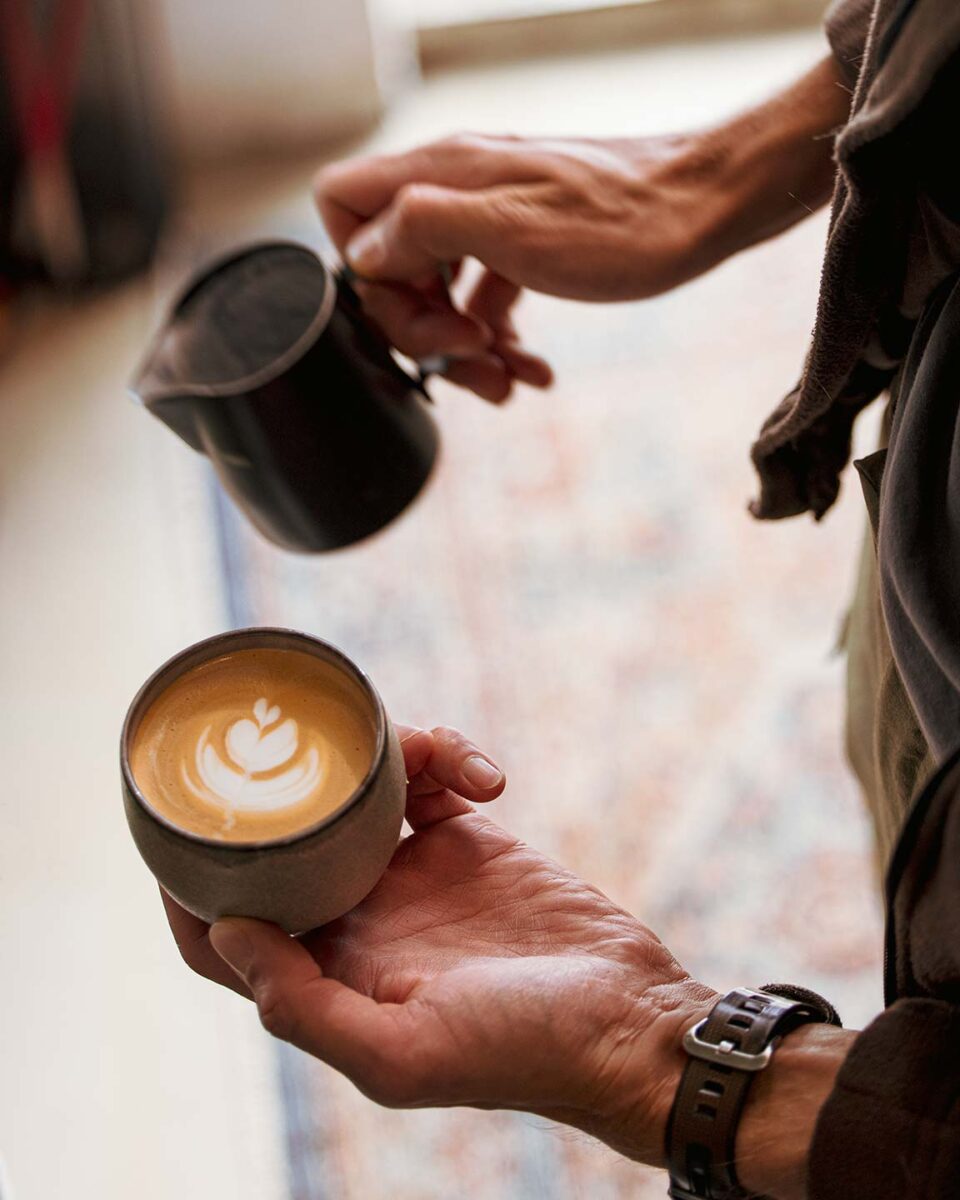
The freedom to make your own decisions
However, people take time to change their habits. 50% of the coffee bought at Backstage is classic Brazilian, with six to eight other coffees sharing the remaining half. The current reality of the shop, where Brazilian and milk coffee drinkers are the majority, is far from their ideal.
Vytenis: “Lithuanians are very conservative when it comes to food and beverages. We want them to know that not all coffee is the same, but we don’t want to push our tastes on them. Instead we try to act as a guide. If we want our business to last, we need to consider the tastes and feedback of the customer too.”
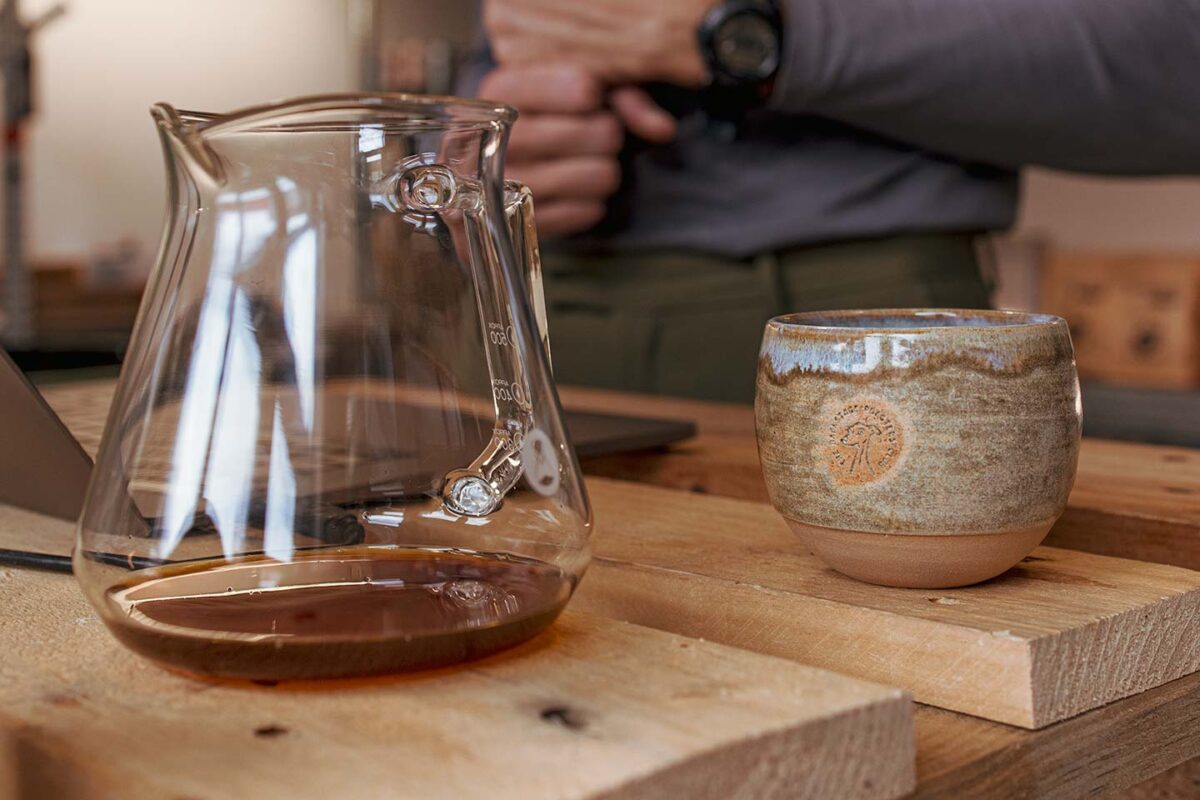
Most of the customers are happy to leave the coffee choice decisions up to the barista. While this shows a lack of preference, it’s also a chance to introduce something new. Backstage actively creates opportunities for customers to discover what they like through samples, tastings, and other methods. Another technique to get customers to try a new coffee is to ask, “Do you want the classic coffee, or will you try something different?” Narrowing the choice down to just two options makes it easier for the customer to choose.
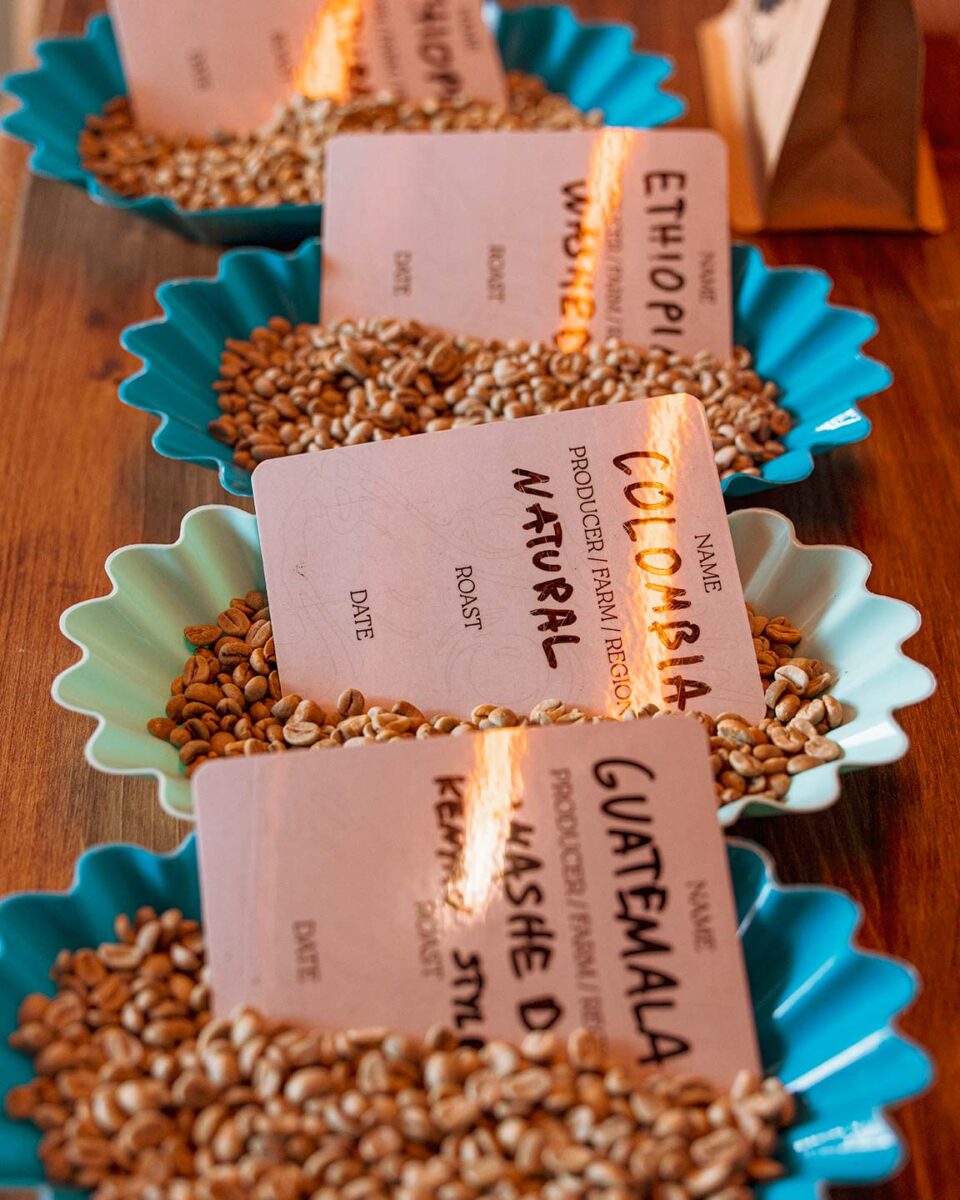
Robert: “Customers who have grown up with commodity coffee think that is what coffee tastes like. So they can’t judge if the new coffee tastes good or bad because for them it’s something totally different. We’ll ask the customer questions to try and find a flavor which helps them move away from the classic flavor profile, without straying too far from the taste that they are looking for. I’m always trying to find that golden place between cheap, classic coffee, and expensive, interesting coffee. That’s where my knowledge and experience really comes into play.”
Every year, Backstage cups more than 200 different varieties of coffee on their journey to find the coffee that ticks all the boxes for quality, story, and price. In an age of information overload, Backstage see themselves as a filter, screening out the unnecessary information.
Robert: “We apply the same approach to everything – math, love, coffee, whatever, our stance is always ‘search till you find it.’ It’s something we encourage our customers to do, too. The more coffee they try, the more likely they are to discover their likes and dislikes. Trying a variety of coffee helps you better define your preferences and develop your tastes.”

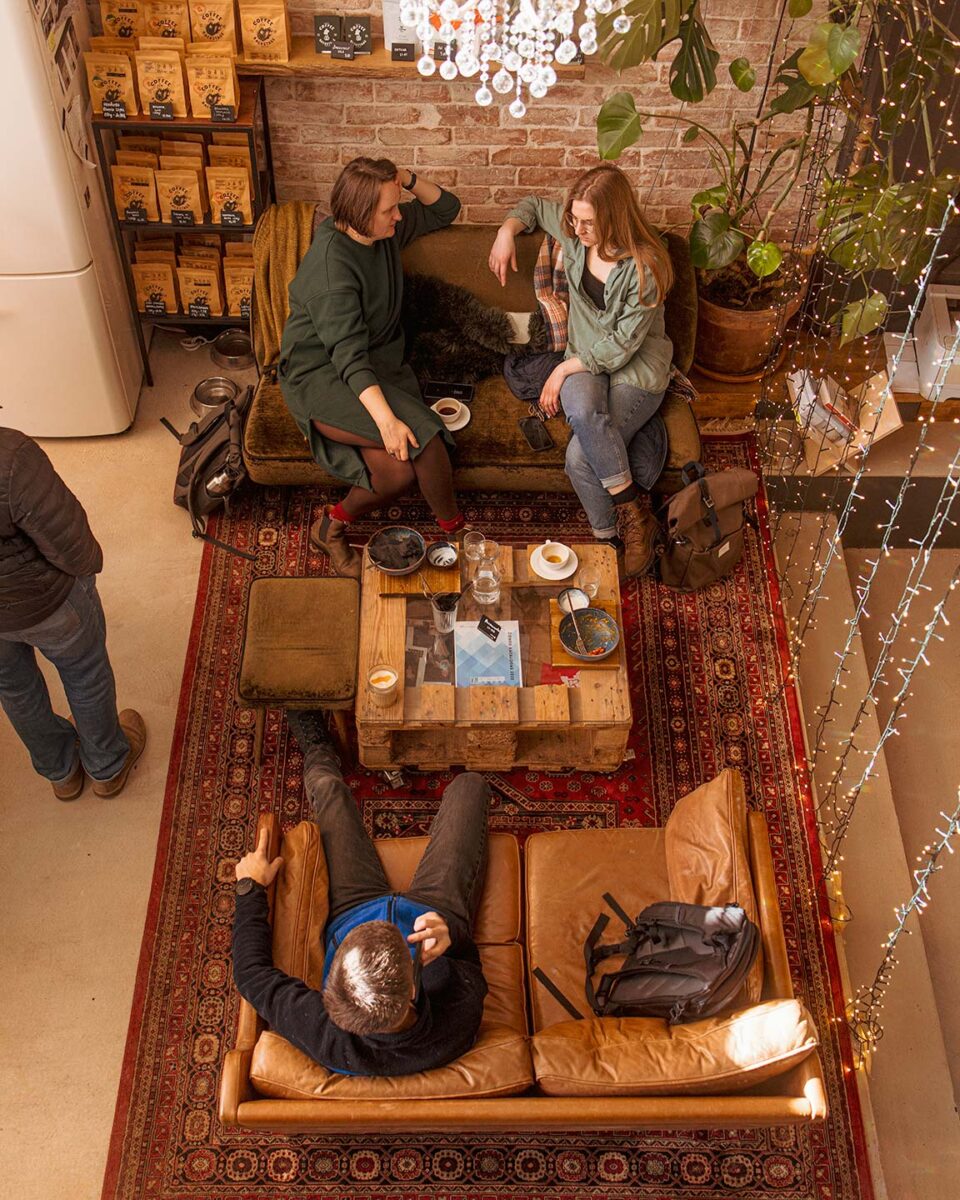
Being true to yourself
The interior of Backstage is designed to be a cozy, giant living room with quality Hi-Fi speakers, and fixtures and fittings chosen by the three. As they solidified the business, they have taken on advice of outside experts, but haven’t compromised their ideals. The space is an authentic reflection of their creativity and personalities.
Vytenis: “The main thing is to believe in ourselves and stay true to the ideas that we believe in. Then other people will be confident that we can do great things. Customers have the final word on the direction, but considering their needs while also being true to our own is what makes this coffee game so interesting!”
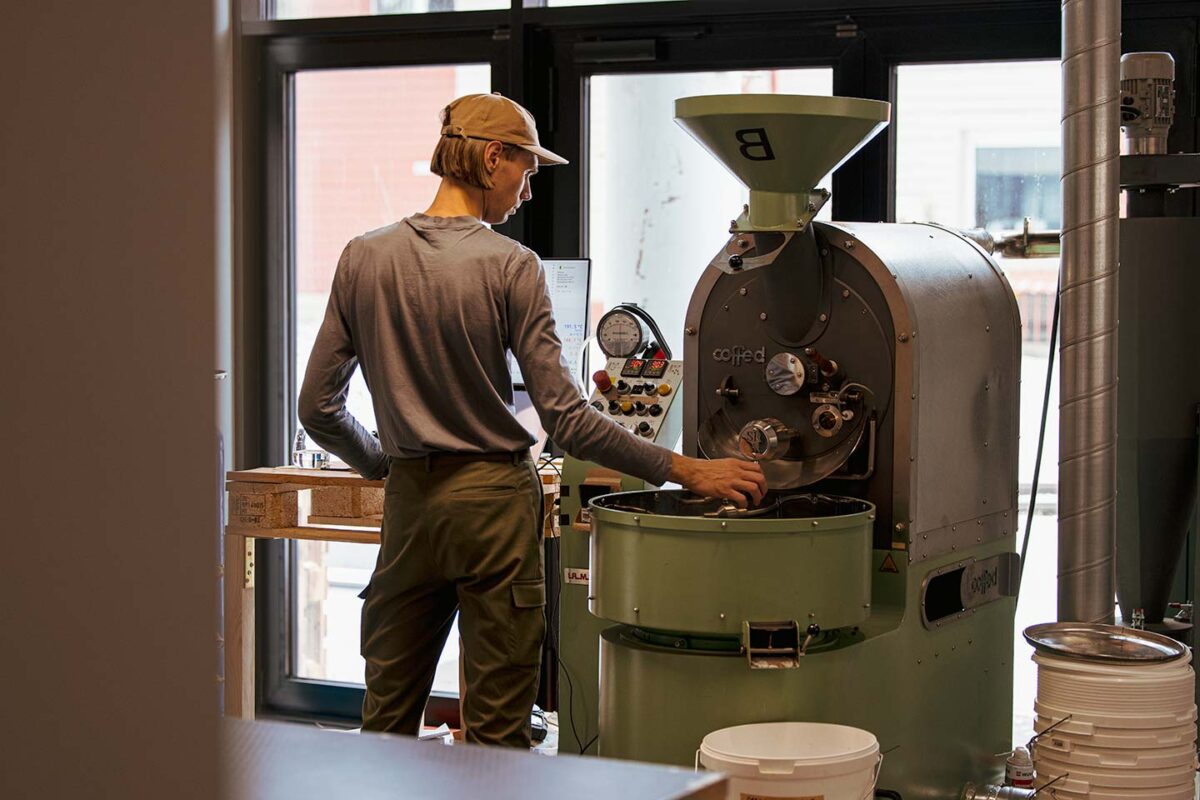
Robert: “There are some coffees that we roast that I don’t like. But if I can understand why the customer likes them, then I’m happy to roast them. When we get feedback from the customers, if we see that we need to change something, then we’ll usually make an adjustment. I see the end consumer as the frame that finishes the picture. Just because we’re not making what we want, doesn’t mean we’re not being creative. In fact, I’d say going through this process to create a finished picture with the consumer is incredibly creative.”
Should you adapt to the needs of the customers and provide them with what they demand? Or should you give them what you think they need? Many would say that if you want to make your business a success, you need to focus on one or the other. Yet at Backstage, they believe there is a golden middle ground where these approaches overlap, and they continue to search for it.
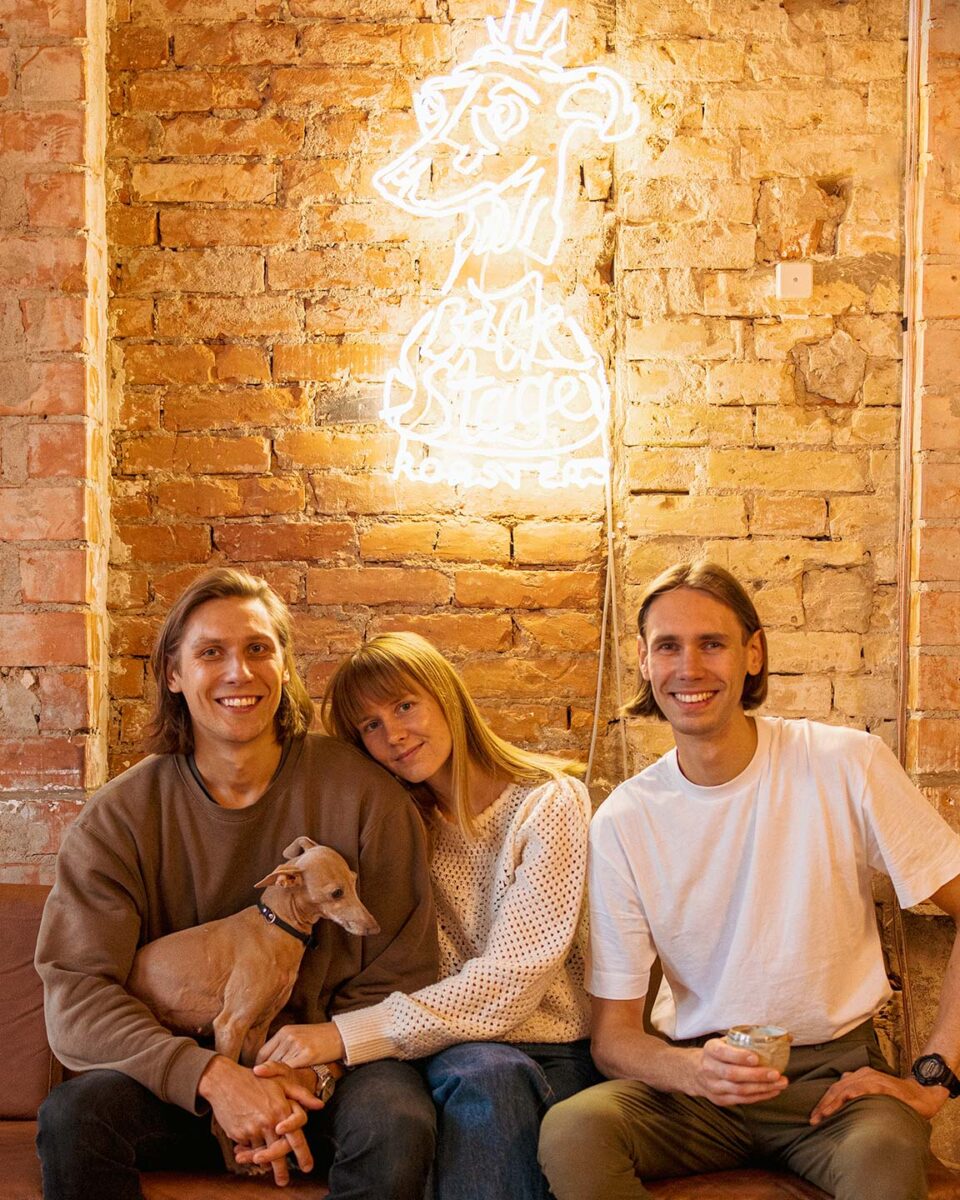
Robert: “When I present a coffee that I’m really excited about, that’s super delicious, and then people are like “meh, it’s okay”, then I get upset, and realize I was focused on my own preferences. But when we find a coffee that excites us and really excites the customers, it’s an incredible feeling. Backstage is built on the belief and hope that one day, our customers will be as excited about specialty coffee as us. It’s what drives us to keep searching.”
Vytenis: “We never lie to the customer. That’s really important for us. We put as much work into our simple coffee selection as we do into coffees that are meant for connoisseurs. If we can make them happy, we’re happy. Making other people happy is how we can find our own happiness, and that is what it means to be true to yourself.”
MY FAVORITE COFFEE
Robert: It’s hard to choose one, but I really like cuppings. I enjoy it when I find a great coffee from the samples. But I also really like in the summertime, to travel on a weekend to the lake or forest, and just spend time in nature. I’ll make a small coffee station and brew and drink my coffee while taking it all in. It’s my favorite time to consume coffee.
